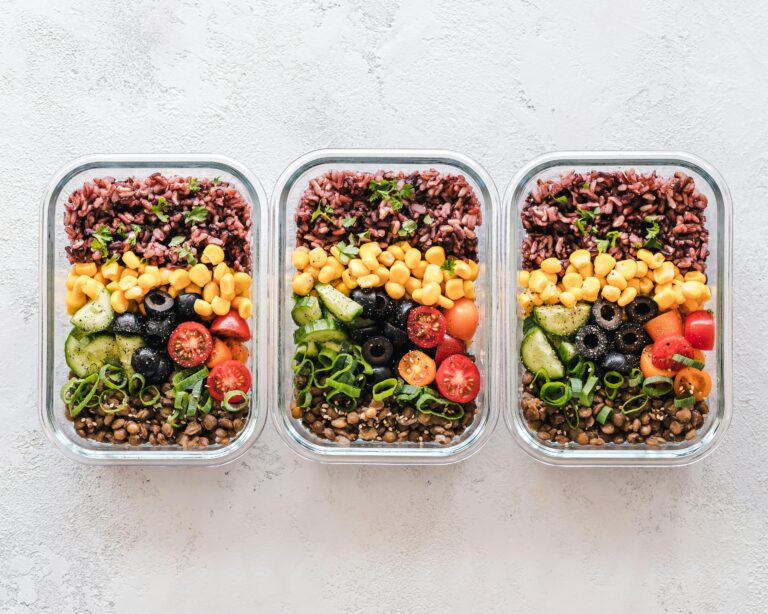This is for the 40-plus gentlemen! Let’s talk about intermittent fasting! I remember when I first heard about this eating pattern – I thought it was just another fad diet but I was wrong! At 43, I decided to give it a shot, and let me tell you, it’s been an interesting journey.
Did you know that about 10% of Americans have tried intermittent fasting? That’s a whopping 33 million people! And for good reason – this approach to eating has some serious potential benefits, especially for us guys in our 40s and beyond.
But let’s be real here – it’s not all sunshine and rainbows. There are some risks and challenges we need to consider. After all, our bodies aren’t exactly spring chickens anymore, right? That’s why I’m excited to share what I’ve learned about intermittent fasting for men over 40. We’ll dive into the benefits, the potential pitfalls, and most importantly, how to get started safely.
So, grab a cup of coffee (black, if you’re fasting!), and let’s explore how intermittent fasting could be a game-changer for your health and vitality.
Understanding Intermittent Fasting
Alright, let’s break down this whole intermittent fasting thing. When I first started, I was like, “Wait, you want me to NOT eat? Are you crazy?” But trust me, it’s not as wild as it sounds.
So, what the heck is intermittent fasting anyway? In a nutshell, it’s an eating pattern where you cycle between periods of eating and fasting. It’s not about WHAT you eat, but WHEN you eat. Pretty simple, right?
Now, there are a few different ways to do this. The most popular one – and the one most people start with – is the 16/8 method. Basically, you fast for 16 hours and eat within an 8-hour window. For me, that meant skipping breakfast and eating between noon and 8 PM.
But that’s not the only way to do it. Some folks swear by the 5:2 method, where you eat normally for five days and drastically reduce calories for two non-consecutive days. And then there’s the eat-stop-eat approach, where you do a 24-hour fast once or twice a week. I tried that one… let’s just say it wasn’t pretty. Hangry doesn’t even begin to describe it!
Now, you might be wondering, “What the heck does this do to my body?” Well, buckle up, because this is where it gets interesting. When you fast, your body goes through some pretty cool changes. It’s like giving your internal systems a tune-up.
First off, your insulin levels drop, which can help with fat burning. Then, your body starts to repair cells through a process called autophagy. It’s like your cells are doing a little Marie Kondo-style cleanup, getting rid of the junk and keeping only what “sparks joy” at a cellular level.
But here’s the kicker – fasting can also increase your levels of human growth hormone. Remember when we could eat a whole pizza and not gain an ounce? Yeah, those were the days. Well, increased HGH can help with fat loss and muscle gain. Not too shabby for a 40+ guy, huh?
Of course, everyone’s body reacts differently. When I started, I felt like a bear coming out of hibernation – a bit groggy and definitely hungry. But after a couple of weeks, something clicked. I had more energy, felt sharper mentally, and my pants even started to fit a little looser.
Just remember, intermittent fasting isn’t a magic bullet. It’s not gonna turn you into a superhero overnight. It’s a tool, and like any tool, it works best when you use it correctly.
So, now that we’ve got the basics down, are you ready to dive into the good stuff? Let’s talk about why intermittent fasting might be your new best friend after 40.
Benefits of Intermittent Fasting for Men Over 40
Okay, gents, this is where things get exciting. When I hit 40, it felt like my body decided to throw me a not-so-fun surprise party. Suddenly, those love handles weren’t so lovable, and don’t even get me started on the brain fog. But then I discovered intermittent fasting, it’s been a game-changer.
First up, let’s talk about the elephant in the room – weight loss. I know, I know, we’re not as vain as we used to be, but who doesn’t want to look good, right? Well, intermittent fasting can be a powerful tool for shedding those stubborn pounds. When I started, I was skeptical. But after a few months, I had to buy new pants because my old ones were falling off! Studies have shown that intermittent fasting can lead to a 3-8% weight loss over 3-24 weeks. Not too shabby, eh?
But here’s the real kicker – it’s not just about losing weight, it’s about where you lose it from. Intermittent fasting has been shown to be particularly effective at reducing belly fat. You know, that annoying spare tire that seems to appear out of nowhere after 40? Yeah, that one. In one study, people doing intermittent fasting lost 4-7% of their waist circumference, indicating a significant loss of harmful belly fat.
Now, let’s talk about something that might not be as visible but is super important – insulin sensitivity. As we age, our bodies can become less sensitive to insulin, which can lead to all sorts of health issues, including type 2 diabetes. But guess what? Intermittent fasting has been shown to improve insulin sensitivity by 3-6% in just 8-12 weeks. When I went for my annual check-up after starting intermittent fasting, my doctor was amazed at how much my numbers had improved!
But wait, there’s more! (I feel like an infomercial salesman, but I swear this is all legit). Intermittent fasting may also help with inflammation in the body. You know how everything seems to ache a bit more after 40? Well, reducing inflammation can help with that. Some studies have shown that intermittent fasting can reduce markers of inflammation, which is linked to a whole host of chronic diseases.
And here’s something that really blew my mind – intermittent fasting might actually help our brains stay sharp. There’s evidence that it can increase the growth of new nerve cells and protect against Alzheimer’s disease. I don’t know about you, but I’ll take all the help I can get in the memory department!
Last but definitely not least, let’s talk about heart health. Heart disease is no joke, especially for men over 40. Well, intermittent fasting has been shown to improve various risk factors for heart disease, including blood pressure, cholesterol levels, triglycerides, and inflammatory markers. It’s like a superhero for your heart!
Now, I’m not saying intermittent fasting is a miracle cure. It’s not going to turn you into a 20-year-old overnight (though wouldn’t that be nice?). But in my experience, and based on a growing body of research, it can make a real difference in how we feel and function after 40.
Of course, it’s not all sunshine and rainbows. There are some potential risks and things to consider, especially for us older gents. But don’t worry, we’ll get into all that in the next section. This is important stuff you need to know before you jump on the intermittent fasting bandwagon!
Potential Risks and Considerations for Men Over 40
Okay, it’s time for some real talk. As much as I love intermittent fasting, it’s not all six-pack abs and boundless energy. There are some potential risks and things we need to consider, especially as when you are over 40. Don’t worry, I’m not here to rain on your parade – just want to make sure you go into this with your eyes wide open.
First up, let’s talk about hormones. Remember when we could stay up all night, eat a greasy breakfast, and still feel great? Yeah, those days are long gone, thanks in part to our changing hormones. Intermittent fasting can affect our hormone levels, including testosterone. Some studies suggest that fasting can temporarily lower testosterone levels. Now, before you panic, this effect is usually short-term and levels typically bounce back. But it’s something to keep an eye on, especially if you’re already dealing with low T.
Next on the list: muscle loss. I know, I know, we worked hard for these muscles (or what’s left of them)! When I first started fasting, I was worried I’d end up looking like a deflated balloon. The good news is, with proper protein intake and resistance training, you can minimize muscle loss. In fact, some studies show that intermittent fasting can even help preserve muscle mass while losing fat. But it’s a balancing act, and you need to be smart about it.
Now, let’s talk about existing health conditions. If you’re like me, you might have picked up a few “souvenirs” over the years – maybe high blood pressure, cholesterol issues, or even diabetes. Intermittent fasting can affect these conditions, sometimes in good ways, but it can also complicate things. For example, if you’re on medication for diabetes, fasting can cause dangerous drops in blood sugar. Always, and I mean ALWAYS, talk to your doctor before starting any new eating pattern, especially if you have existing health issues.
Energy levels are another big consideration. When I first started fasting, there were days when I felt like I could conquer the world, and others where I could barely conquer getting out of bed. It takes time for your body to adjust, and some guys find that their energy levels or athletic performance take a hit, at least initially. If you’re planning on running a marathon or trying to deadlift your personal best, you might want to time your fasting windows carefully.
Now let’s talk about nutrients. As we get older, our bodies become less efficient at absorbing certain nutrients. When you’re eating in a restricted time window, it can be challenging to get all the vitamins and minerals you need. I learned this the hard way when I started feeling like a zombie and realized I wasn’t getting enough B12. A balanced, nutrient-dense diet during your eating windows is crucial, and some guys might need to consider supplements.
Now, don’t let all this scare you off. For many of us, the benefits of intermittent fasting far outweigh the risks. But it’s important to be aware of these potential issues and how to mitigate them. Remember, we’re not spring chickens anymore – we need to be smart about how we treat our bodies.
In the next section, we’ll talk about how to start intermittent fasting safely after 40. With the right approach, you can navigate these potential pitfalls and reap the benefits of this powerful eating pattern. Stick around, because I’ve got some tips that I wish someone had told me when I was starting out!
How to Start Intermittent Fasting Safely After 40
Alright, gentlemen, now that we’ve covered the good, the bad, and the ugly of intermittent fasting for us 40+ guys, let’s talk about how to actually get started. And don’t worry, I promise it doesn’t involve starving yourself or giving up your favorite foods (mostly).
First things first, choose your fasting method. Remember those different approaches we talked about earlier? Well, now’s the time to pick one that fits your lifestyle. When I started, I went with the 16/8 method because, let’s face it, I was never much of a breakfast person anyway. But maybe you’re more of a 5:2 kind of guy, or perhaps the eat-stop-eat approach tickles your fancy. There’s no one-size-fits-all here – it’s about finding what works for you.
Now, here’s a crucial tip: start slow. I know, I know, we men tend to have an “all or nothing” mentality. But trust me on this one. When I first tried fasting, I jumped in headfirst with a 24-hour fast. Big mistake. I was cranky, dizzy, and pretty sure I was hallucinating by hour 20. Not exactly the picture of health I was going for.
Instead, try this: start by pushing your breakfast back by an hour each day. So if you usually eat at 7 am, try 8 am for a few days, then 9 am, and so on. This gradual approach gives your body time to adapt, and trust me, your family will thank you for not turning into a hangry monster overnight.
Next up, let’s talk about what you eat during your eating windows. This isn’t a free pass to go hog wild at the all-you-can-eat buffet (though I’d be lying if I said I hadn’t been tempted). Focus on nutrient-dense foods that will keep you satisfied during your fasting periods. I’m talking lean proteins, healthy fats, lots of vegetables, and some complex carbs. When I first started, I made the mistake of eating whatever I wanted during my eating window. Let’s just say my body was not impressed, and neither were my energy levels.
Speaking of energy, let’s talk hydration. This is crucial. When you’re fasting, it’s easy to forget about drinking water, but staying hydrated is key. I learned this the hard way when I got a splitting headache during my first week of fasting. Now, I start each day with a big glass of water and keep sipping throughout the day. And yes, black coffee and unsweetened tea are okay during your fasting window – they were my lifesavers!
Now, let’s address the elephant in the room – exercise. Many of us have finally gotten into a good workout routine, and the idea of changing it up can be scary. The good news is, you don’t have to give up your gym time. In fact, exercising while fasting can have some great benefits. I found that I actually had more energy for my morning workouts once I adapted to fasting. Just listen to your body – if you’re feeling weak or dizzy, it’s okay to break your fast a little early.
One thing I wish someone had told me when I started: pay attention to how you feel. Intermittent fasting isn’t supposed to make you miserable. If you’re constantly tired, irritable, or just not feeling right, it’s okay to adjust your fasting schedule or even take a break. Remember, we’re doing this for our health, not to win some kind of endurance contest.
Lastly, and I can’t stress this enough, talk to your doctor before starting. I know, I know, we men aren’t always the best at going to the doctor. But trust me on this one. Your doc can help you navigate any potential risks, especially if you have existing health conditions or are on medications.
Starting intermittent fasting after 40 doesn’t have to be a daunting task. With a little planning and patience, you can ease into it and start reaping the benefits. And hey, you might even surprise yourself. I never thought I’d be the guy voluntarily skipping meals, but here I am, feeling better than I have in years.
In the next section, we’ll dive into some tips for success that I’ve picked up along the way.
Tips for Success with Intermittent Fasting
Alright, now that we’ve covered how to start, let’s talk about how to stick with it and make intermittent fasting work for you in the long run. I’ve picked up a few tricks along the way that I wish I’d known from the beginning. So, grab your notepad (or your smartphone, if you’re more tech-savvy than I am), because these tips could be game-changers.
First up: meal planning. I know, I know, it sounds like something your wife might do, but trust me on this one. When I first started fasting, I’d get to my eating window and suddenly realize I had no idea what to eat. Cue the panic ordering of pizza or inhaling whatever I could find in the fridge. Not exactly a recipe for success. Now, I plan my meals for the week, and it’s made a world of difference. I’m not saying you need to become a master chef overnight, but having some healthy, pre-prepared meals ready to go can be a lifesaver.
Next, let’s talk about managing hunger and cravings. This was a big one for me. At first, I thought I was going to die of hunger (spoiler alert: I didn’t). But I did learn some tricks. Keeping busy during fasting periods helps a lot. I started taking up new hobbies – turns out I’m not half bad at woodworking! Also, don’t underestimate the power of a good cup of black coffee or herbal tea. They can help curb hunger and give you something to sip on.
Now, motivation. Let’s face it, there will be days when you want to throw in the towel and face-plant into a plate of nachos. That’s where tracking your progress comes in. I started taking weekly photos and measurements, and seeing the changes over time was incredibly motivating. Plus, it’s pretty cool to see your belt notches moving in the right direction!
One thing that tripped me up at first was social situations. You know, the office birthday cakes, the weekend barbecues, the “just one beer” that turns into a full night out. It can be tough to stick to your fasting schedule when everyone around you is eating. My advice? Be flexible, but have a plan. If you know you’ve got a dinner out with friends, adjust your fasting window that day. And don’t be afraid to tell people what you’re doing – you might be surprised at how supportive they can be.
Here’s a big one: listen to your body. There will be times when you need to break your fast early, and that’s okay. Maybe you’re feeling particularly run down, or you’ve got a big presentation at work and need the extra fuel. The key is to not let it derail you completely. If you break your fast early one day, just get back on track the next day. Remember, we’re in this for the long haul.
Lastly, don’t forget to celebrate your wins, no matter how small. Did you make it through your first 16-hour fast? Celebrate! Did you resist the donuts in the break room? That’s a win! Managed to button up those jeans that haven’t fit in years? Time for a (healthy) treat! This journey is as much mental as it is physical, and acknowledging your progress can help keep you motivated.
Remember guys, intermittent fasting isn’t about being perfect. It’s about making sustainable changes that improve your health and well-being. There will be ups and downs, but with these tips, you’ll be better equipped to navigate the challenges and reap the rewards.
In our final section, we’ll talk about some common mistakes to avoid. Trust me, I’ve made most of them so you don’t have to! Stay tuned, because this could save you a lot of headaches (and stomach aches) down the road.
Common Mistakes to Avoid
Alright, we’re in the home stretch now. Let’s talk about some common pitfalls that can trip you up on your intermittent fasting journey. Consider this your cheat sheet to avoid the mistakes I (and many others) have made along the way.
First up: overeating during your eating windows. Man, this was a big one for me. When I first started fasting, I treated my eating windows like an all-you-can-eat buffet. I mean, I’d been fasting for 16 hours, so I deserved to eat whatever I wanted, right? Wrong. I quickly learned that cramming two days’ worth of calories into an 8-hour window wasn’t doing me any favors. The key is to eat normally during your eating windows – not starve yourself, but not go overboard either.
Next mistake: neglecting nutrient-dense foods. When you’re eating in a restricted time frame, it can be tempting to reach for quick, easy (and often unhealthy) foods. But your body needs good nutrition more than ever when you’re fasting. I made the mistake of living on coffee and protein bars for a while, and let me tell you, my body was not happy. Focus on getting a good balance of proteins, healthy fats, and complex carbs, along with plenty of fruits and veggies.
Here’s a big one: ignoring your body’s signals. We men can be pretty stubborn sometimes, pushing through discomfort because we think we have to. But when it comes to fasting, it’s crucial to listen to your body. If you’re feeling dizzy, weak, or excessively irritable, it might be time to break your fast. Remember, this isn’t a contest to see who can fast the longest. It’s about improving your health.
Another common mistake is pushing too hard, too fast. I get it, we want results yesterday. But trying to jump into a 20-hour fast right off the bat is a recipe for disaster. Trust me, I tried it, and the only thing I accomplished was making myself and everyone around me miserable. Start slow, and gradually increase your fasting window over time.
Here’s one that might surprise you: not drinking enough water. When you’re not eating, it’s easy to forget about drinking too. But staying hydrated is crucial, especially when you’re fasting. I learned this the hard way when I ended up with a killer headache and fatigue. Now, I make sure to drink plenty of water throughout the day, fasting or not.
Last but definitely not least: not consulting with a healthcare provider. I know, I know, we men aren’t always the best at going to the doctor. But when it comes to making significant changes to your eating habits, especially after 40, it’s important to get the all-clear from a professional. They can help you navigate any potential risks, especially if you have existing health conditions or are on medications.
Now, don’t let these potential mistakes scare you off. The good news is, now that you know about them, you can avoid them! Remember, intermittent fasting is a journey, not a destination. It’s about making sustainable changes that improve your health and well-being over the long term.
And there you have it, gents! We’ve covered the ins and outs of intermittent fasting for men over 40. From understanding what it is and how it works, to the benefits and potential risks, to how to get started and stay on track. I hope this guide has given you the information and confidence you need to give intermittent fasting a try.
Remember, every body is different, and what works for one person might not work for another. But if you approach intermittent fasting with patience, flexibility, and a willingness to listen to your body, you might just find that it’s the game-changer you’ve been looking for in your health journey.
So, are you ready to give it a shot? Who knows, you might just surprise yourself with what you’re capable of. Here’s to your health, gentlemen!
Conclusion:
Well, we’ve been on quite a journey together, haven’t we? From understanding what intermittent fasting is all about, to diving into the benefits and risks, and even getting into the nitty-gritty of how to make it work for us 40+ fellas. It’s been a lot to take in, but I hope you’re feeling as excited about the possibilities as I am.
Let’s recap the key points, shall we? Intermittent fasting can be a powerful tool for weight loss, improved insulin sensitivity, better heart health, and even sharper cognitive function. But it’s not without its challenges, especially for us guys over 40. We need to be mindful of our hormone levels, muscle mass, and existing health conditions.
The key to success? Start slow, listen to your body, and be flexible. Remember, this isn’t about perfection – it’s about finding a sustainable way to improve your health and well-being. And hey, if you can button up those old jeans again, that’s just a bonus!
Now, I can’t stress this enough – before you jump on the intermittent fasting bandwagon, have a chat with your doctor. They can help you navigate any potential risks and make sure this approach is right for you.
As you embark on your intermittent fasting journey, remember that everyone’s experience is different. What works for me might not work for you, and that’s okay. Be patient with yourself, celebrate your wins (no matter how small), and don’t be afraid to adjust your approach as needed.
So, gentlemen, are you ready to give intermittent fasting a try? Remember, it’s not about depriving yourself – it’s about taking control of your health and feeling better than you have in years. Who knows? This could be the start of a whole new chapter in your life.
Here’s to your health, to new beginnings, and to proving that life after 40 can be even better than before. Cheers!







